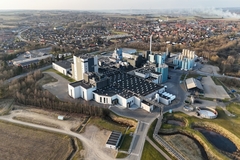
- Industry news
Industry news
- Category news
Category news
- Reports
- Key trends
- Multimedia
Multimedia
- Journal
- Events
- Suppliers
- Home
- Industry news
Industry news
- Category news
Category news
- Reports
- Key trends
- Multimedia
Multimedia
- Events
- Suppliers
Tate & Lyle Maintains Outlook, Reports Positive Initial Response to Allulose Product

02 Apr 2015 --- Following a string of recent profit warnings, Tate & Lyle's financial outlook seems to be stabilizing. Based on trading performance for the fourth quarter, the company reported that there is no change from the guidance in our trading statement on 6 February 2015. “We continue to expect Group adjusted profit before tax for the year ended 31 March 2015 to be modestly below the range stated in September 2014 of £230 to £245 million,” Tate & Lyle reported.
As expected, for the full year, Group adjusted operating profit has been held back by the impact of the operational and supply chain issues experienced mainly in the first half, and the continued extremely competitive market for SPLENDA Sucralose.

“We expect net debt at 31 March 2015 to be around £500 million, higher than reported at 31 December 2014 (£466 million), principally due to investment in working capital as we continue to rebuild inventories and an exchange translation impact of around £20 million following further strengthening of the US dollar.”
As planned, the project to evaluate how best to maximise returns from SPLENDA Sucralose is reaching conclusion and will be finalized with the Board during April. Tate & Lyle expects to communicate the outcome in the next few weeks. Tate's sucralose problems surfaced in February 2014, when the company discussed a dramatic drop in prices of the artificial sweetener it sells to food and drink makers, due to intense competition from cheaper Chinese rivals.
On 24 February 2015 Tate & Lyle launched DOLCIA PRIMA Allulose, a low-calorie sugar, “the most significant example of the innovation capability we established three years ago at our Commercial and Food Innovation Centre in Chicago.” Since the launch, the company has reported encouraging early interest and engagement from customers across a range of applications, and this supports our confidence in its longer term potential. However, given the relatively long development and adoption cycles for new ingredients, they do not expect it to have any material effect on the Group’s performance during the next financial year.










